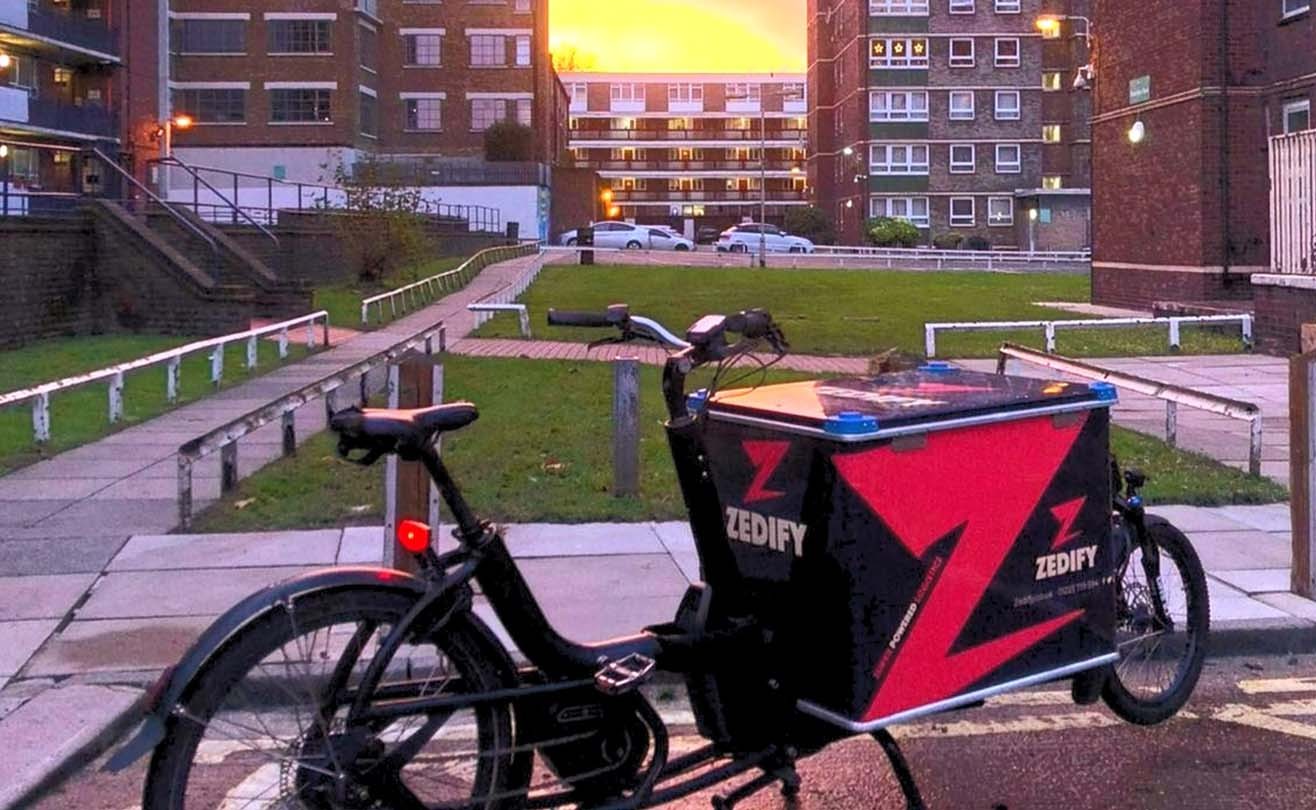
Whysustainablelogisticsmattertoyouandyourcustomers
 August 26th, 2022
August 26th, 2022 Bex Young
Bex Young 5 minute read
5 minute readWhy Sustainable Logistics Matter To Your City And Your Customers
Have you started thinking about how your business can be more sustainable? If not, why not? In a world where we are increasingly realising the impact of global warming and recognising the need to change, sustainability is a hot topic – and it is one which you cannot afford to ignore.
Just a few years ago, more than half (58%) of consumers were willing to spend more money with a business that offered more sustainable options. However, today, nearly 90% of Gen X consumers said that they would spend an extra 10% or more on sustainable products.
But it’s not just about sustainable products. Businesses also need to think about their environmental impact across different functions, including in their shipping and logistics departments.
Today’s companies are being urged to consider their environmental impact and how they can be more green, or else get left behind their competitors. So, if this is something you need to address in your business, you’ve come to the right place.
In this guide, we’re going to take a look at why sustainable logistics matters to your city and to your customers so you can make better choices for the future of your business and the planet.
What do we mean by ‘sustainable logistics’?
Let’s first take a look at what we mean when we talk about sustainable logistics, before looking at why it’s so important.
In a nutshell, employing sustainable logistic practices means taking into consideration every aspect of the supply chain, and getting practices in place to make everything greener and more sustainable.
The idea is to lower your company’s ecological footprint,by, for example, reducing CO2 emissions, cutting noise pollution or opting for sustainable and recyclable packaging.
This requires that your business break down each stage of the logistics process to determine which are having the most detrimental impact on the planet. This could be too many deliveries, methods of transportation, packaging materials or storage spaces.
Businesses need to take a holistic look at each element and consider what strategies they can use to reduce their impact on the planet.
Examples of sustainable logistics
To better understand sustainable logistics, we thought it might be helpful to share a few ways that businesses can make their practices greener. We hope this is useful if you’re hoping to change things up this year. Some examples of sustainable strategies include:
- Ethical sourcing of goods and products, including materials used for packaging
- Streamlining warehouse operations to make more of the space and help lower energy usage
- It pays to invest in green energy sources, such as solar or wind power, for your warehouses
- Optimising transport and delivery routes to cut down on the number of journeys and reduce emissions
- Using more sustainable methods of transport, such as electric vehicles and cargo bikes
- Optimising reverse delivery practices, such as making returns. This might mean allowing customers to drop off goods at your stores or collecting reusable packaging when they’re done with it
Implementing just one of these strategies can contribute to greener logistics, but the more you’re able to do, the better.
Why sustainable logistics matter
There are so many reasons your business should go green this year. Just in case you’re still not sold yet, here are five key benefits of sustainable logistics:
For your city and the local people
Transport emissions vary from place to place, but in major cities, they are one of the biggest sources of greenhouse gases and air pollution. This is not just bad for the planet, but it drives up the risk of serious health conditions amongst those who live there.
By choosing increasingly sustainable transport methods, such as electronic vehicles, particularly in key cities where lots of deliveries are being made, the local community will reap the rewards.
To lower your carbon footprint
Even if you don’t live or work in the city, the primary goal of sustainable logistics is to lower your company’s carbon footprint – something all businesses need to be striving for if they hope to stay competitive.
By automating delivery routes and getting other greener strategies in place, you can lower the carbon footprint of your business. This is obviously great news for the planet but is also an important selling point.
Winning over more customers
As we mentioned above, today’s consumers are inclined to spend more money on goods and services that use sustainable and more environmentally friendly practices. This is even more applicable for the younger generations, who will someday make up the largest percentage of consumers.
As such, using sustainable practices and, of course, talking about these can help you to attract and win over more customers. Although you should want to go greener for the sake of the planet, it also gives you some great marketing opportunities.
Improving your operations
Despite many wrongly believing that getting new greener practices in place may lead to logistical issues, quite the opposite is true. Although there might be an initial adjustment period, going green has actually been shown to improve operations and supply chain management.
Optimised delivery routes and reverse logistics can make operations much smoother. Not only this, but streamlining warehouses and making the most of equipment can improve energy efficiency. Consolidating delivery rounds on cargo bikes is a much more efficient way to deliver goods; riders can pop in and out of cities easily and fulfill numerous rounds a day.
So, even though you might need to make some initial changes, you will be doing your business and the planet a huge favour in the long run.
Saving your business money
Last but certainly not least, employing sustainable logistics practices can save your business money. Part of making your practices greener means eliminating waste and boosting efficiency so that the planet benefits.
Author: Stuart Cooke
My Baggage
mybaggage.com




